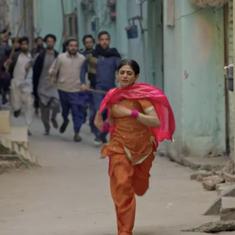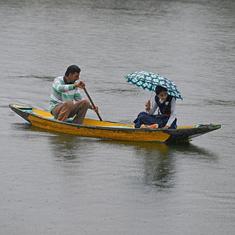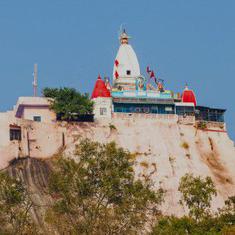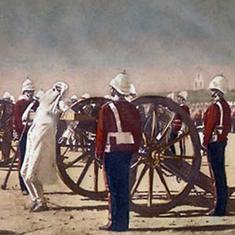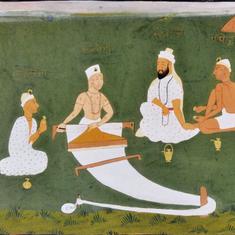In August 2015 – almost exactly ten years ago – I visited the Kashmir Valley, and spoke to a cross-section of people from different walks of life. One of them was the journalist, Shujaat Bukhari. In January 2015, I had bumped into Bukhari in a Delhi bookshop, and he urged me to visit his home state.
When I turned up in Srinagar later in the year, we had a long, and for me, most educative discussion about Kashmir past and present. As I prepared to leave, Bukhari remarked, half-jokingly, that he was grateful that, unlike the government of India, which had left unhonoured almost all the promises it made to Kashmiris down the decades, I had kept my word to him and come.
In June 2018, Shujaat Bukhari was tragically murdered by assailants whose identities and motives remain unknown. The following year, the government of India abrogated Article 370, in a legal sleight-of-hand whereby an unelected governor was deemed to represent the democratic will of the people of Jammu and Kashmir.
For the first time in the history of independent India, a full-fledged state of the republic was downgraded to a mere Union territory. The home ministry then appointed a Bharatiya Janata Party loyalist as lieutenant governor.
A betrayal
The abrogation of Article 370 was a betrayal of a constitutional promise made to the people of Jammu and Kashmir. However, it was not entirely unanticipated, since it was now the BJP and not the Congress that was in power in New Delhi, and the party had long advocated the junking of Article 370. Notably, while annulling the Act, the government of India did make a fresh promise in Parliament – that it would restore full statehood to Jammu and Kashmir.
It is now almost six years since that promise was made, and there is no sign of it being honoured. This delay is not a case of bureaucratic apathy but of malign political intent. The Narendra Modi-Amit Shah government allocated just one month for the revision of the electoral rolls in Bihar. In Jammu and Kashmir, whose population is one-tenth of that of Bihar, it took them five years to organise elections. There was a reallocation of assembly constituencies which favoured Hindu-dominated Jammu at the expense of Muslim-dominated Kashmir.
In Kashmir itself, the BJP sought to promote a third, and even a fourth, party as alternatives to the National Conference and the Peoples Democratic Party. The press within Kashmir was muzzled, with independent-minded journalists being harassed by the police, arrested, or forced into exile.
In the event, all these efforts by the BJP to manipulate the electoral process to its advantage failed. The National Conference, a party which Vajpayee’s BJP was in partnership with but which Modi’s BJP detests, won a comfortable overall majority in the assembly. Several months before the elections, the Supreme Court had called for the restoration of statehood in Jammu and Kashmir. But once the results came in, and the Jammu and Kashmir unit of the BJP had to sit in the Opposition, there was little incentive for Modi and Shah to heed its call.
Jammu and Kashmir now has an elected chief minister, Omar Abdullah. In an important symbolic act, the National Conference appointed its sole Hindu MLA as deputy chief minister. But with all effective decision-making in the hands of an unelected lieutenant governor, the chief minister and his cabinet can do little to move Jammu and Kashmir in the direction of peace and prosperity.
Since he took office as chief minister, Omar Abdullah had largely chosen the path of reconciliation, even deference, over confrontation. He eschewed direct criticism of the lieutenant governor, while politely pleading with the Union government to restore statehood.
Earlier this month, however, Abdullah was compelled to take on the lieutenant governor directly. On July 13, 1931, some 21 Kashmiris protesting against the autocratic rule of Maharaja Hari Singh were killed by the Maharaja’s police. Ever since, July 13 is commemorated as Martyrs’ Day in the Valley, much as January 30, the day that Mahatma Gandhi was murdered in 1948, is marked as Martyrs’ Day in other parts of India.
This past July 13, however, Kashmiris of all political tendencies were prohibited by the lieutenant governor from any commemoration of the event. After being confined by the police to his house on July 13, the next day, the chief minister defied the lieutenant governor by climbing over a fence and paying his respects to the martyrs in the cemetery in which they were buried.
Till August 5, 2019, July 13 was a public holiday in Jammu and Kashmir. However, after the state became a Union territory, it was removed from the list of holidays. Instead, the birthday of Maharaja Hari Singh was made a public holiday. This was an act of spite, and possibly also of majoritarian intent.
After being denied permission to visit the cemetery, Omar Abdullah tweeted: “13th July massacre is our Jallianwala Bagh. The people who laid down their lives did so against the British. Kashmir was being ruled under the British Paramountcy. What a shame that true heroes who fought against British rule in all its forms are today projected as villains only because they were Muslims.”
While the first sentence quoted here is somewhat hyperbolic, the other sentences ring true. Between 1857 and 1947, all Maharajas and Nawabs, almost without exception, were British toadies. And even by the standards of princely India, Hari Singh was a thoroughgoing autocrat. However, that he was a Hindu, and those protesting his autocratic rule were largely Muslim, may be behind the revision of the list of public holidays in Jammu and Kashmir.
The refusal to grant statehood is a betrayal of a solemn promise made by the Modi-Shah government. Yet the ill-treatment of the Kashmiris extends beyond this issue, while responsibility for this ill-treatment also lies with Indians outside of government.
On August 12, 2019, Mukesh Ambani, the chairman of Reliance Industries, promised that his group would set up a “special task force” to make a series of investments in Jammu and Kashmir. There is no sign of that happening yet. Nor have other Indian companies taken up the baton.
Industrial investments in Jammu and Kashmir are meagre, leading to an ever-increasing exodus of the best and brightest, as captured in a recent report in the Deccan Herald newspaper, which documents how “across villages, towns and cities in Kashmir, young professionals, graduates, and even school students are slowly turning away – not just from home, but from hope”.
Also culpable are the Indian media. In my experience, the most reliable information on Jammu and Kashmir comes from reporters on the ground, usually writing for newspapers and websites that are not headquartered in the National Capital Region.
In the matter of Kashmir especially, the “godi media” in the NCR fully lives up to its lapdog status, with newspapers suppressing reports that might show the Union government in a poor light, and television channels actively promoting falsehoods, as when a peace-loving Indian citizen of Poonch, who died in shelling from across the border, was demonised as a “Pakistani terrorist”.
In everything they have done – and not done – since August 5, 2019, the Union government has made it manifest that it wants Kashmiris to be submissive and docile subjects, not free and self-respecting citizens. Tragically, the aam aadmi of peninsular India have, in deplorably large numbers, likewise displayed their hostility towards the people of Kashmir.
Unceasing demonisation
The manner in which Kashmiri students in other states were abused and made to flee their colleges in the wake of the Pahalgam terror attack, the lack of gratitude to the Kashmiris who acted with such exemplary bravery and decency to rescue tourists and take them to safety, the regular and unceasing demonisation of Kashmiris on social media, speak of a mindset in which too many Hindus either unconsciously or willingly project our Kashmiri fellow citizens as disloyal and unreliable only because they are Muslims by faith.
Pakistan may have once had a tenuous legal case when it came to Kashmir, yet by its regular, sustained, and cynical promotion of terrorists and terrorism, it has long since abrogated any claim to the territory and its people. However, for Indians to make their own case more robust and more credible, more worthy of themselves and the values they claim to uphold, it is past time that we begin redeeming promises made by successive governments to the people of Jammu and Kashmir.
Restoring statehood, and doing so immediately, is a necessary first step. At the same time, we shall have to do much more to make Kashmir and Kashmiris feel properly and honourably part of the Republic of India.
This article first appeared in The Telegraph.
Ramachandra Guha’s latest book, Speaking with Nature: The Origins of Indian Environmentalism, is now in stores. His email address is ramachandraguha@yahoo.in.
